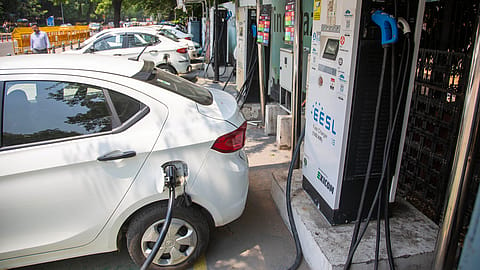Need to relook GST on EV batteries, charging: PMO adviser
The government is targeting 100% electrification in two-wheelers by 2030.

The electric vehicle sector is important for India not only from the energy security point of view but also because the aim of the government is to make India a hub of EV manufacturing, according to Tarun Kapoor, adviser to the Prime Minister’s Office.
India has the target of increasing the EV sales penetration reach 30% by 2030 and the government is working in that direction, Kapoor says at the FICCI’s national conference on electric vehicles.
“On 2-wheelers, we should have much higher targets and a complete replacement is what we have to look for in this segment. On 3-wheelers as well, the switch has to be 100%, at least in some cities. On 4-wheelers, government is fully supportive and there is a need to look at GST on batteries and charging stations,” says Kapoor.
While EVs attract only 5% GST, lithium-ion batteries and charging services face 18% GST rate.
Rationalisation of GST rates has been an ask from the EV sector, specifically the reduction of GST on lithium-ion batteries to 5% (from current rate of 18%) and the lowering of GST on EV charging services to 5%.
Speaking on electric vehicles, Anish Shah, president, FICCI and Group CEO & Managing Director, Mahindra Group said, “In the last four years, the EV industry has transitioned from 0 per cent to 23 per cent. The subsidy has come down from ₹1 lakh to ₹50,000, and now to ₹25,000, as increased volumes and scale have driven down costs. This subsidy will continue until the end of FY26. Beyond FY26, it will no longer be required, because we will reach that level of scale where the industry can fund it themselves.”
HD Kumaraswamy, Minister for Heavy Industries and Steel, said that India stands at a critical juncture in its journey towards green and sustainable transportation. “Innovation and research will be key in driving down costs and improving efficiency of electric vehicles. We are actively supporting research initiatives in battery technology, charging infrastructure and recycling,” he said.
Recommended Stories
The minister further stated that the government’s commitment to sustainable mobility goes beyond policy, and it embodies a vision of energy security, cleaner air, and modernised transport.